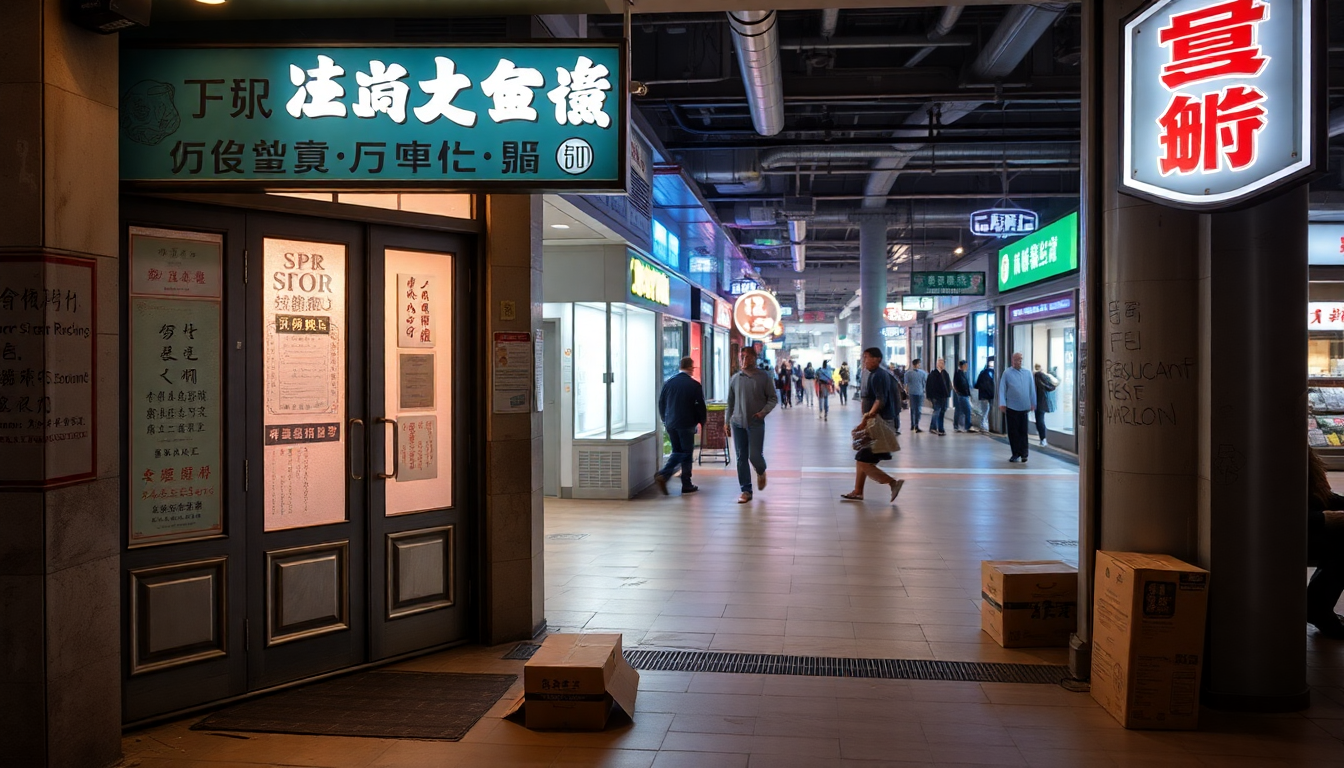Table of Contents
After over three decades of serving diners in Hong Kong, Super Star Seafood Restaurant has officially closed its last branch at the Moko shopping centre in Mong Kok. This sudden decision has left around 50 employees facing the harsh reality of unpaid wages and uncertain futures. But beyond the immediate impact on these workers, this closure shines a spotlight on the wider struggles within the local catering industry, which has been grappling with a host of challenges that are fundamentally reshaping consumer behavior and market dynamics.
Challenges in the Hong Kong Catering Industry
The announcement from Super Star Seafood Restaurant revealed that the company has been wrestling with significant difficulties in recent years. The local consumer market has weakened, and the spending habits of tourists have dramatically shifted, directly affecting business operations. As a result, this once-thriving restaurant chain found itself unable to keep the lights on at the Moko branch, leading to its closure effective July 2. This decision followed unsuccessful negotiations with landlords for much-needed rent relief—a lifeline for many businesses caught in financial distress.
Indeed, the restaurant industry in Hong Kong has been hit by a perfect storm of challenges, including economic fluctuations, changing tourist behaviors, and rising operational costs. And let’s not forget the pandemic, which has only intensified these issues, forcing many cherished establishments to close their doors for good. Super Star Seafood Restaurant was not immune to these trends, having already shuttered several branches across the city, highlighting a troubling decline in its overall viability.
The Impact on Employees and the Community
The fallout from the Moko branch’s closure puts approximately 50 employees in a precarious position. Chiu Kwun-chung, head of the Eating Establishment Employees General Union’s labor rights committee, has reported that these workers are now seeking assistance to recover outstanding wages, severance payments, and compensation for untaken leave. The total owed to these employees is estimated to exceed HK$5 million (around US$637,000), underscoring the significant financial blow dealt by the restaurant’s sudden closure.
This situation doesn’t just impact the employees; it reverberates through the local community and the broader dining landscape in Hong Kong. Founded in 1989, Super Star Seafood Restaurant was celebrated for its fresh seafood offerings and had woven itself into the cultural fabric of the area. Its closure marks the end of an era and raises pressing questions about the future of similar restaurants facing the same pressures.
Looking Ahead: The Future of the Catering Industry in Hong Kong
The recent developments in the catering sector signal a pressing need for adaptation and innovation. As consumer preferences continue to evolve, businesses must think creatively to meet these changing demands. This could mean diversifying menus, enhancing the customer experience, or leveraging technology to streamline operations. What strategies will restaurants adopt to survive and thrive in this new landscape?
Moreover, tackling the challenges of rising costs and shifting market dynamics is crucial for the survival of restaurants in Hong Kong. Engaging with stakeholders to seek collaborative solutions, such as rental agreements that reflect current economic realities, will be essential moving forward.
In conclusion, the closure of Super Star Seafood Restaurant serves as a poignant reminder of the challenges that the catering industry faces in Hong Kong. As businesses navigate these turbulent waters, the support of the community and a proactive approach to change will be pivotal in shaping a resilient future. How can we, as consumers, play a role in supporting our local dining establishments during these tough times?


